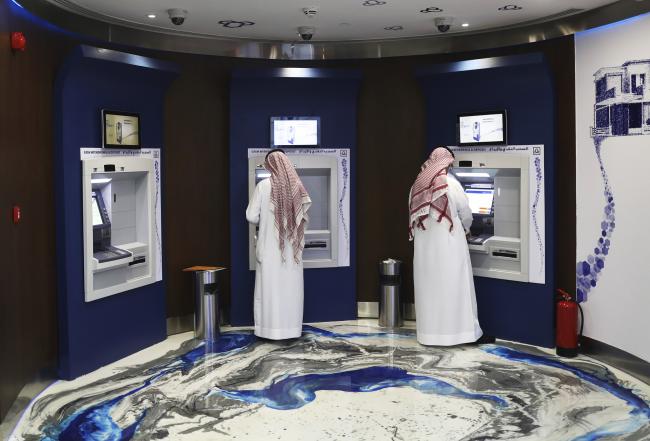(Bloomberg) -- Saudi Arabia and United Arab Emirates banks may have their annual revenue estimates cut by one or two percentage points for every 25 basis basis point decline in U.S. interest rates, according to Bloomberg Intelligence.
A 25 basis point cut in U.S. rates will pull down the net interest margin at banks by about 6 basis points, analyst Edmond Christou said in a report on Sunday. The margin is the difference between what a bank earns on assets such as loans and what it pays out on liabilities such as deposits.
Currencies in Saudi Arabia and the U.A.E. are pegged to the dollar, and the two countries usually follow interest-rate changes made by the U.S. Federal Reserve. The market is pricing in about a 75 basis point reduction in U.S. rates by year-end, data compiled by Bloomberg show.
Loans make up more than 70% of Gulf banks’ earnings assets that are largely floating-rate corporate facilities, and changes in interest rates have a huge impact on income from lending, according to the Bloomberg Intelligence report.
The net interest margin at Emirates NBD PJSC, the U.A.E.’s second-biggest bank, may fall by 10 to 12 basis points for every 25 basis points cut in rates, the most among the top four U.A.E. lenders, according to Christou. The net interest margin at Dubai Islamic Bank PJSC and Saudi lenders Al Rajhi Bank and Riyad Bank may hold up better.
In a falling interest-rate environment, banks may increasingly focus on raising the contribution of non-interest income, favor fixed-rate lending or more investments, according to the report. Lower interest rates will also mean cheaper credit for companies and individuals, which is likely to support near-term loan growth and ease repayment pressure.
